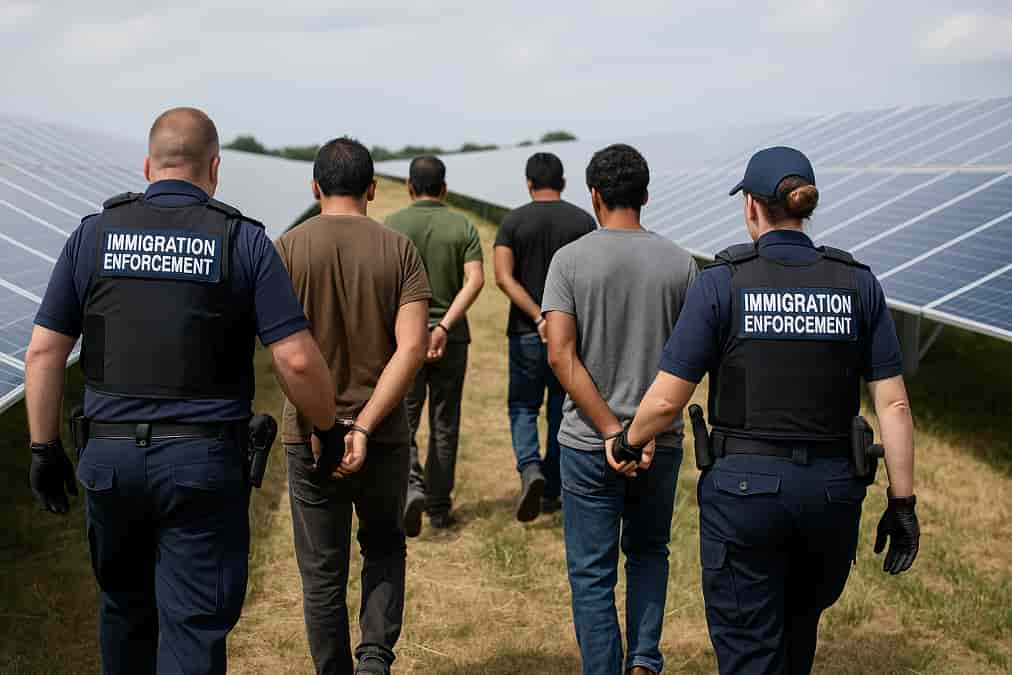Authorities have confirmed that fifteen individuals were arrested on suspicion of working illegally at the Goldbeck Solar Farm near Bristol. The arrests followed a planned operation by Immigration Enforcement, supported by Avon and Somerset Police, on Thursday, 28 August 2025.
According to the Home Office, the operation was carried out after intelligence suggested that workers without the legal right to work in the UK were employed on the site. Officers moved in swiftly, detaining the suspects and removing them for questioning. A Home Office spokesperson said the arrests formed part of wider efforts to “tackle illicit working and protect the integrity of the labour market.”
At present, officials have not released details about the nationalities or immigration statuses of the individuals detained. It also remains unclear whether the arrests will lead to further investigations into the site’s employment practices or potential breaches by contractors and sub-contractors linked to the project.
Questions over compliance in the renewable energy sector
The case has raised fresh concerns about the oversight of staffing in renewable energy projects. As Britain accelerates investment in solar power and other green energy initiatives, demand for skilled and unskilled labour has risen. With many projects involving complex subcontracting arrangements, industry insiders warn that the system can create loopholes where routine checks on employees’ right to work may not always be enforced.
Critics argue that while the UK’s transition to cleaner energy is vital, it must be matched by rigorous governance. Employment experts stress that genuine workers—particularly those seeking legitimate routes into the industry—risk being undercut or displaced if illegal working is left unchecked.
Wider political and social implications
The arrests come at a time when the government faces mounting pressure to demonstrate stronger control over migration and workplace standards. Ministers have consistently argued that illegal working not only damages the economy but also leaves vulnerable individuals at risk of exploitation, often with little recourse to safe working conditions.
Locally, there has been some unease about what the arrests might mean for the region’s reputation as a hub for renewable energy investment. While the Goldbeck Solar Farm is a high-profile project aimed at increasing clean energy supply, the involvement of illegal workers could prompt questions from investors, regulators, and the wider public about due diligence within the sector.
Balancing enforcement with fairness
Campaigners and community voices have highlighted that while the law must be upheld, the focus should not fall solely on workers themselves. Some argue that the spotlight should also turn to employers and agencies who stand to benefit financially from cutting corners.
For the workers, the next steps will likely involve immigration proceedings that could result in removal from the UK. The Home Office has stated that each case will be “considered individually” in line with existing legal frameworks.
Looking ahead
It remains to be seen whether this operation will be followed by prosecutions or sanctions against any company or contractor involved. What is certain is that this case will feed into a broader national debate about workforce integrity, border policy, and the standards expected of businesses engaged in strategically important sectors such as renewable energy.
This case underscores the vital importance of ensuring that the UK labour market is fair, lawful, and transparent. Protecting workers requires not only strong enforcement but also consistent oversight of industries where growth and opportunity must go hand in hand with compliance.




